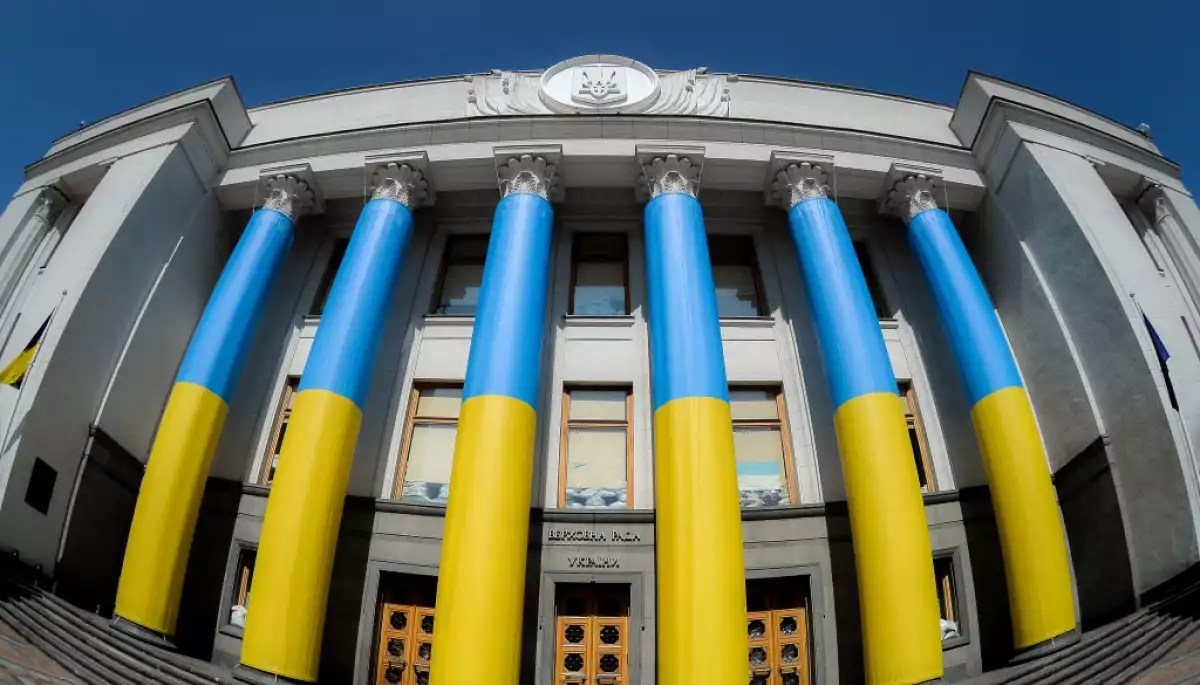Українською читайте тут.
The Media Movement, as well as Ukraine's media and human rights NGOs call on the Verkhovna Rada deputies to not support the draft bill No. 10242 in its current version. This draft bill poses significant threats to freedom of speech, the work of journalists, and the protection of journalists' sources and whistleblowers in Ukraine, says their joint address.
You can join in signing the address here.
The draft bill expands and introduces criminal liability (8 years in prison) for publicly disclosing confidential data from public registers during martial law. At the same time, the draft bill provides no protection mechanisms for those who report on confidential data of public interest.
The authors of the address believe that the draft bill creates a tool that may be exploited to persecute journalists. Namely, it enables wiretapping and surveillance of journalists by the government.
“Under the guise of combating ‘data abuse,’ a tool is being created that may be exploited to persecute journalists reporting on corruption schemes or abuse of office. Examples of investigations whose authors may be prosecuted under the provisions of this draft bill include reporting on the schemes for men to illegally leave abroad during martial law or on the dubious wealth of prosecutors,” the address says.
The authors of the statement call on international organizations and human rights activists to join the assessment of this bill and speak out about its impact on freedom of speech in Ukraine.
The Institute of Mass Information provides the full address:
We, the Media Movement members and Ukraine's media and human rights NGOs, call on the Verkhovna Rada deputies to not support the draft bill No. 10242 in its current version. This draft bill poses significant threats to freedom of speech, the work of journalists, the protection of journalists' sources and corruption whistleblowers in Ukraine.
The draft bill expands and introduces criminal liability for various types of acts placing confidential information from public registers in free access, or other acts that enable free access to such information by an unspecified circle of persons. The proposed punishment of 8 years in prison for such actions committed under martial law is disproportionate and essentially classifies such actions as grave offence. Under the guise of combating ‘data abuse,’ a tool is being created that may be exploited to persecute journalists reporting on corruption schemes or abuse of office. Examples of investigations whose authors may be prosecuted under the provisions of this draft bill include reporting on the schemes for men to illegally leave abroad during martial law or on the dubious wealth of prosecutors.
The draft bill provides no protection mechanisms for those who disclose confidential information of public interest. Even if there is a public necessity to disclose it, the provisions of the Laws of Ukraine “On Information” and “On Access to Public Information”, which are specifically intended to protect the disclosure of such information, may not be sufficient to protect journalists in court when the updated version of Article 361-2 of the Criminal Code is applied.
Classifying such actions as grave offences enables the authorities to conduct covert investigative operations targeting journalists, including wiretapping and surveillance, which is a significant breach of the information source protection standards.
The draft bill is being proposed under the guise of fulfilling the requirements of the European Union, but its provisions contradict the principles of freedom of speech and protection of journalistic sources and whistleblowers as enshrined in international documents, including the recently adopted European Media Freedom Act.
Expanding criminal liability should be accompanied by the creation of reliable mechanisms to protect journalists and whistleblowers. Laws that limit the possibilities of public control over the authorities and contributes to the creation of a fearful environment among journalists not only harms democracy but also undermines trust in state institutions.
We support improving the legislation, but only if it takes into account the interests of society and does not become a tool for oppressing freedom of speech. At a time when Ukraine is fighting for its future as a democratic state, any attempts to restrict the rights of journalists beyond absolute necessity, justified by the need to protect the interests of the state, and not its individual representatives, are unacceptable.
We call on international organizations and human rights advocates to join the assessment of this draft bill and speak out on its impact on freedom of speech in Ukraine.
The address is open for signing. To join, fill out this form.
Media Movement
Digital Security Lab Ukraine
Institute of Mass Information
NGO Detector Media
Center for Public Investigations
NGO Human Rights Platform
ZMINA Center for Human Rights
Texty.org.ua
Slidstvo.Info
Civil society network OPORA
Court journalism cetner Graty
Trap Aggressor
Bihus.Info
NGO Institute of Regional Press Development
Online news outlet Novyny Donbasu
Ukrainian Pravda
Euromaidan Press
Anti-Corruption Action Center
Media network Vikno Vidnovlennya
Solutions outlet Rubryka
Online news outlet Skhidnyi Variant
Center for Democracy and Rule of Law
Souspilnist Foundation
For reference. The Media Movement is a community that brings together journalists from leading Ukrainian media, investigative journalists, and experts from media NGOs. Media Movement was launched on February 5, 2019.
The first signatories of the Media Movement Memorandum were UA: Pershyi, Ukrainian Radio, Hromadske Radio, Ukrinform, Interfax-Ukraine, Liga.net, Dzerkalo Tyzhnia. Ukraine”, NV, ‘Censor.net’, Channel 5, ‘Ukrainian Week’, Opinion, a number of regional media, NGOs Independent Media Council, Detector Media, Institute of Mass Information, Internews Ukraine, Center for Democracy and Rule of Law, Souspilnist Foundation, National Association of Media, Donetsk Institute of Information, Pylyp Orlyk Institute for Democracy, Zmina Human Rights Center.


